How to choose a camera case?
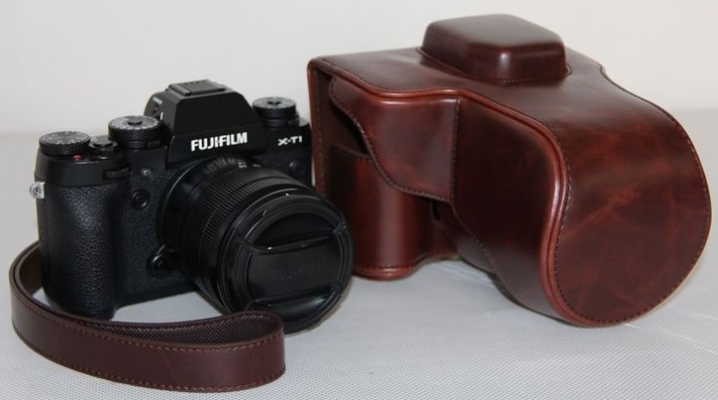
A camera is a sensitive technique that should be protected from dust, dirt, rain, and accidental mechanical influences. Therefore, the next important purchase is the case.
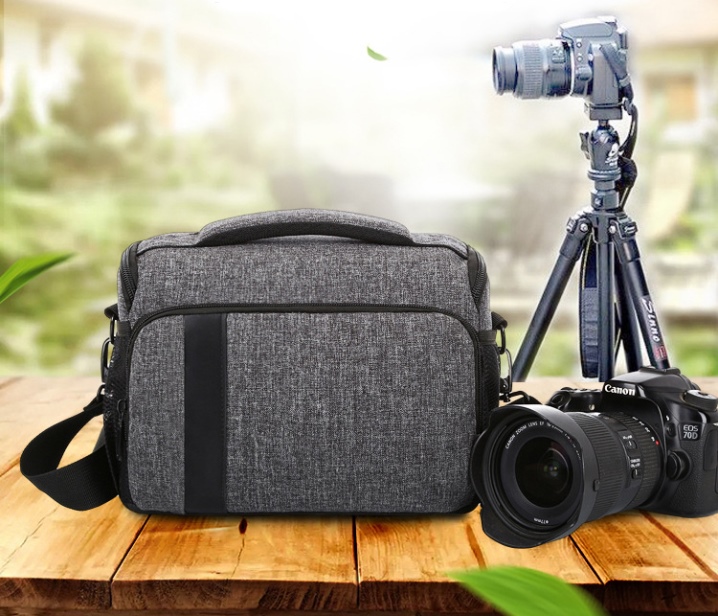
It is not worth delaying its purchase, especially if you have expensive equipment.
The need for haste is due to the following factors:
- fragility of technology and there is a high probability of damaging it, and the cover provides reliability and confidence in safety;
- the comfort of some covers with handles, quickly appreciated by photographers;
- multifunctionality of cases with pockets and additional compartments allows you to carry with you not only the camera, but also the small things attached to it - a memory card, batteries, a napkin, a spare battery.
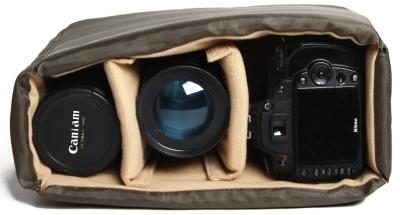
Appointment
The situations in which you need to shoot are different, you have to not choose the seasons and weather. Covers in their variety will help to cope with the influences of the external environment. For example, the rain version will keep the equipment in wet weather, the insulated one will protect the expensive equipment in the cold. There are different types of waterproof covers, from compact, tight-fitting to aqua boxes.
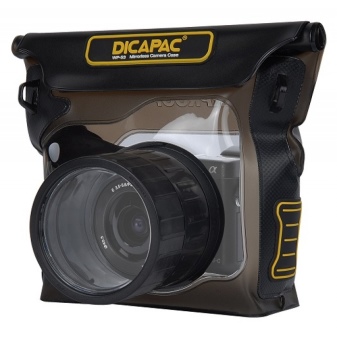
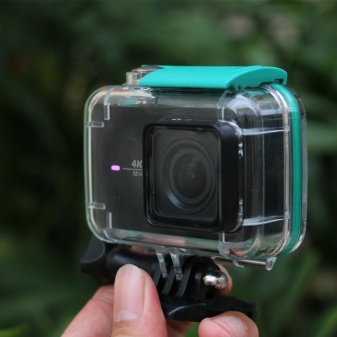
So, by purpose, certain types of covers can be distinguished.
- Waterproof. They are not only made of waterproof material, but also completely sealed. Covers of this kind are also divided by purpose. Some are designed for rainy weather, while others are for underwater filming. The latter, in turn, are classified according to depth indicators, to what limits they are able to carry a full-fledged service.
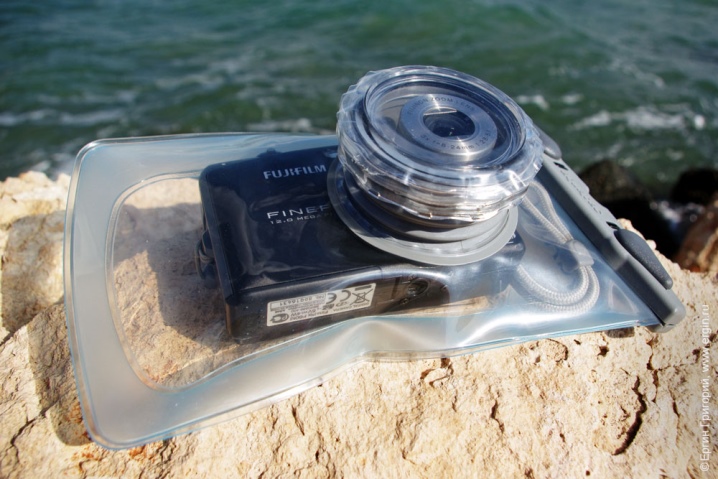
- Frost resistant. Warm covers are indispensable for cameras in winter, especially in harsh climatic conditions. Even if the shooting is carried out indoors, you can bring precious equipment to it only in a protective case. Such products have a reliable layer of insulation located between the outer and inner parts of the cover.
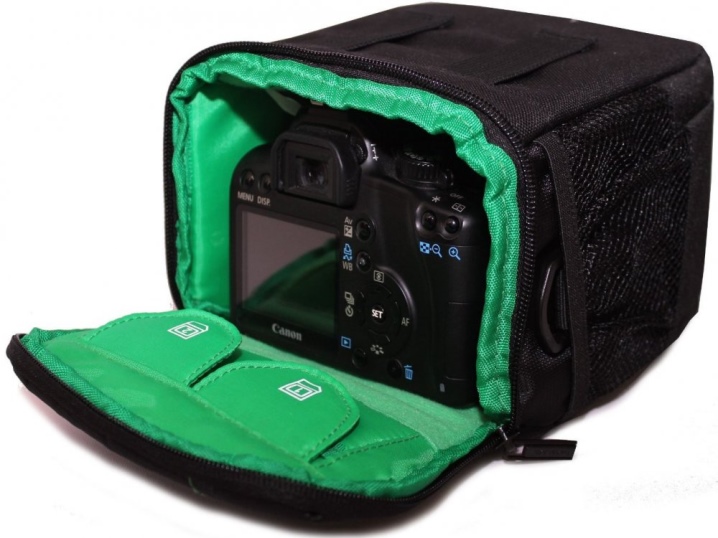
- For traveling. These include multifunctional options with additional sections and pockets. The camera and everything necessary for it is safely hidden and transported in one case. Such products are usually complemented by comfortable handles.
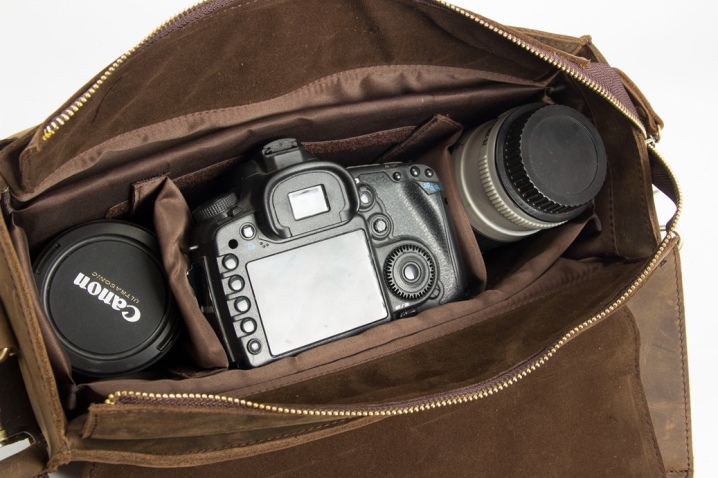
- For shooting in the city or park. If the camera has to be worn all day to perpetuate landmarks, the case is chosen with the minimum size and weight, with the possibility of quick access to technology. Often it has a long strap for carrying around the neck and a short headband, which makes it possible to hang the device on the arm.
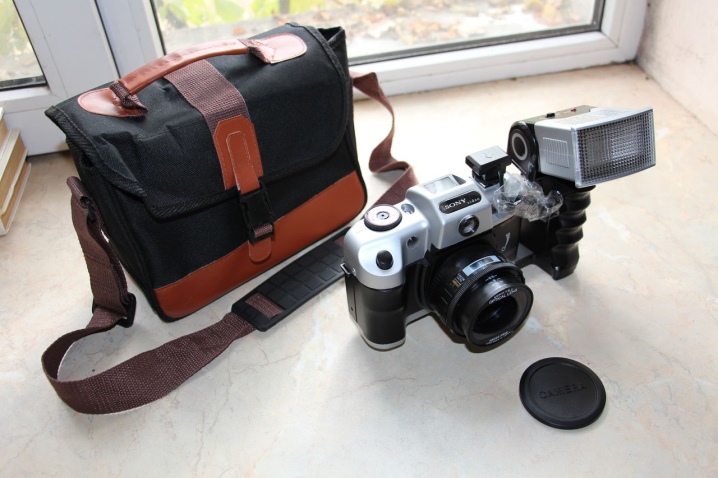
Views
There are no less varieties of covers than the cameras themselves, it is impossible to classify them unequivocally. We have already figured out the distinctive properties by purpose, now we will consider other distinction criteria.
- By size... It is quite natural that a digital "soap box" will require a case of much smaller parameters than for a SLR camera.
- By aesthetic preferences... Women can choose models in delicate colors. Men prefer comfortable forms and strict colors - black, gray, brown. Those who care about status or style will buy a leather product. Cases for children's equipment are more like a bright box for a toy.
- By density. It depends on the material of manufacture. For whom the minimum weight is important - choose covers made of fabric, if you need shockproof functions, pay attention to a hard case with a soft inner layer.
- At the place of wearing. In addition to the cover, there can be shoulder straps, a loop for wearing on the wrist. The holster case is located on the belt, the insert case is in a regular bag, the sling shot is on the shoulder (backpack version with one strap).
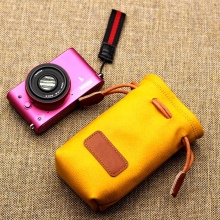
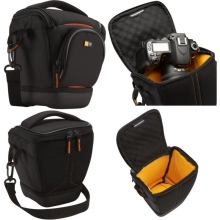
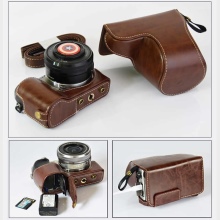
Materials (edit)
The shape, appearance, prestige and protective properties of the cover depend on the material.
- Fabric. Durable synthetic textiles are selected for the products. Refers to inexpensive and lightweight options.
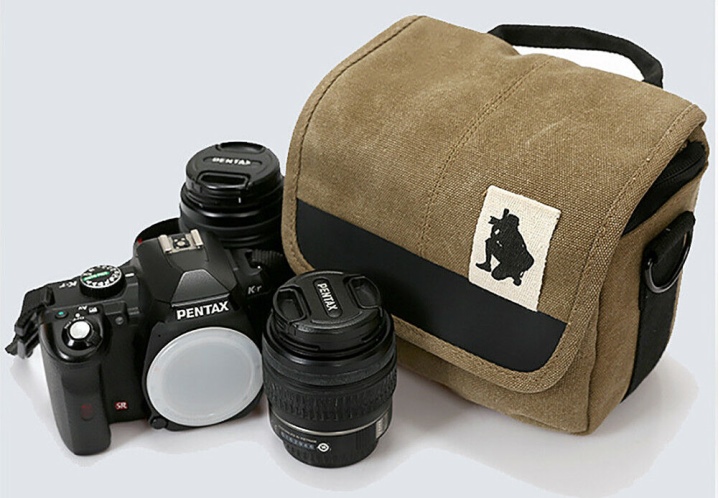
- Neoprene... Chloroprene rubber, elastic, waterproof.
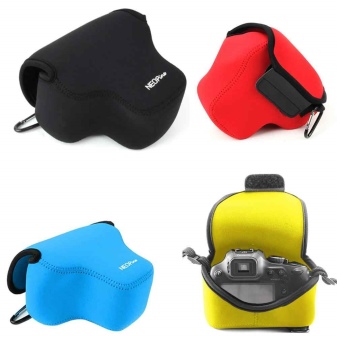
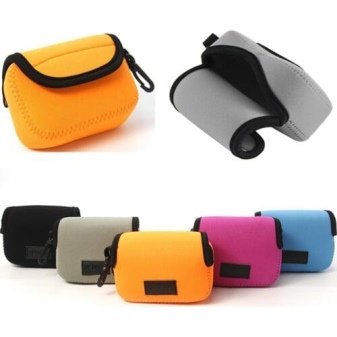
- Plastic. Modern high-impact plastic is used for hard cases.
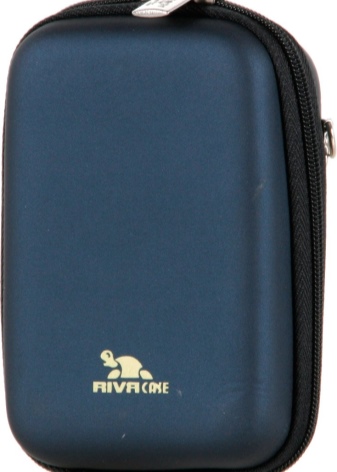
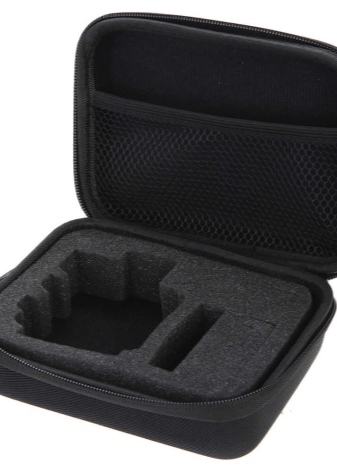
- Silicone. Tight-fitting cover with cutouts for work items.
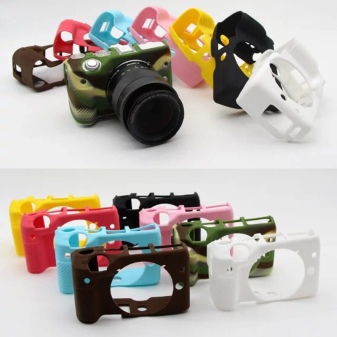
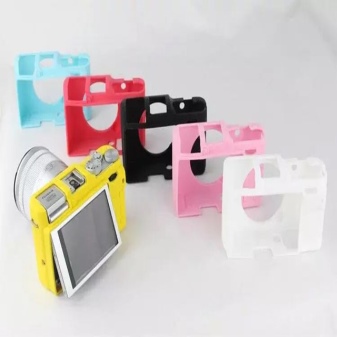
- Leather. They are used for compact status models.
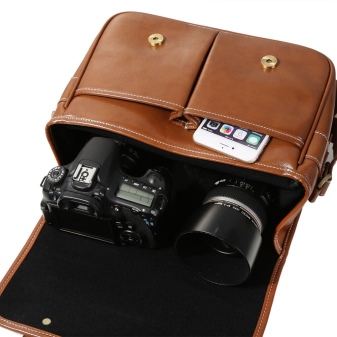

Criterias of choice
When choosing a camera case, you should pay attention to important points.
- The size. The equipment should not dangle freely in the case, the protective product should be selected by size.
- Reliability... All valves, fasteners and fasteners are checked before purchase.
- Comfort... It is better to immediately try out the possibility of wearing the equipment and choose the most convenient way.
- Security. The presence of waterproof and shockproof qualities is desirable.
- Capacity. There are compartments for small things that create certain conveniences.
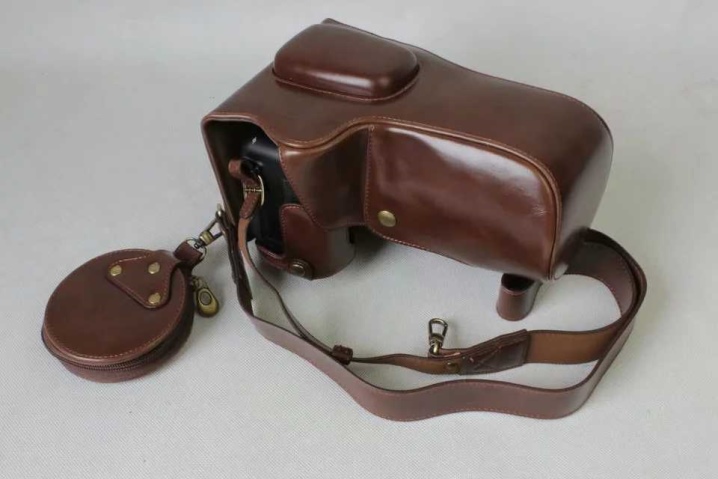
When choosing a case, you need to remember that the ideal product will be lightweight, with quick access to working elements, with good protective properties and comfortable weight distribution.
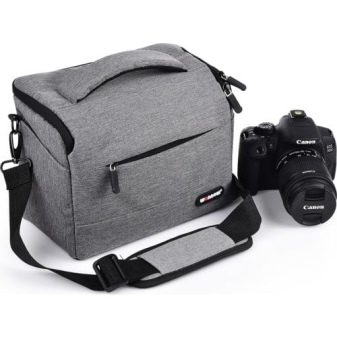
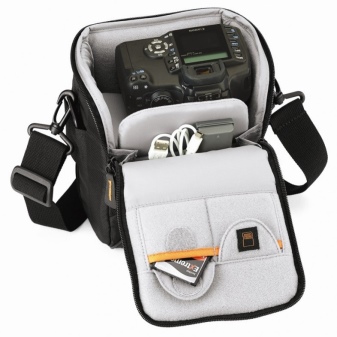
The video below shows an example of using a silicone camera case.













The comment was sent successfully.